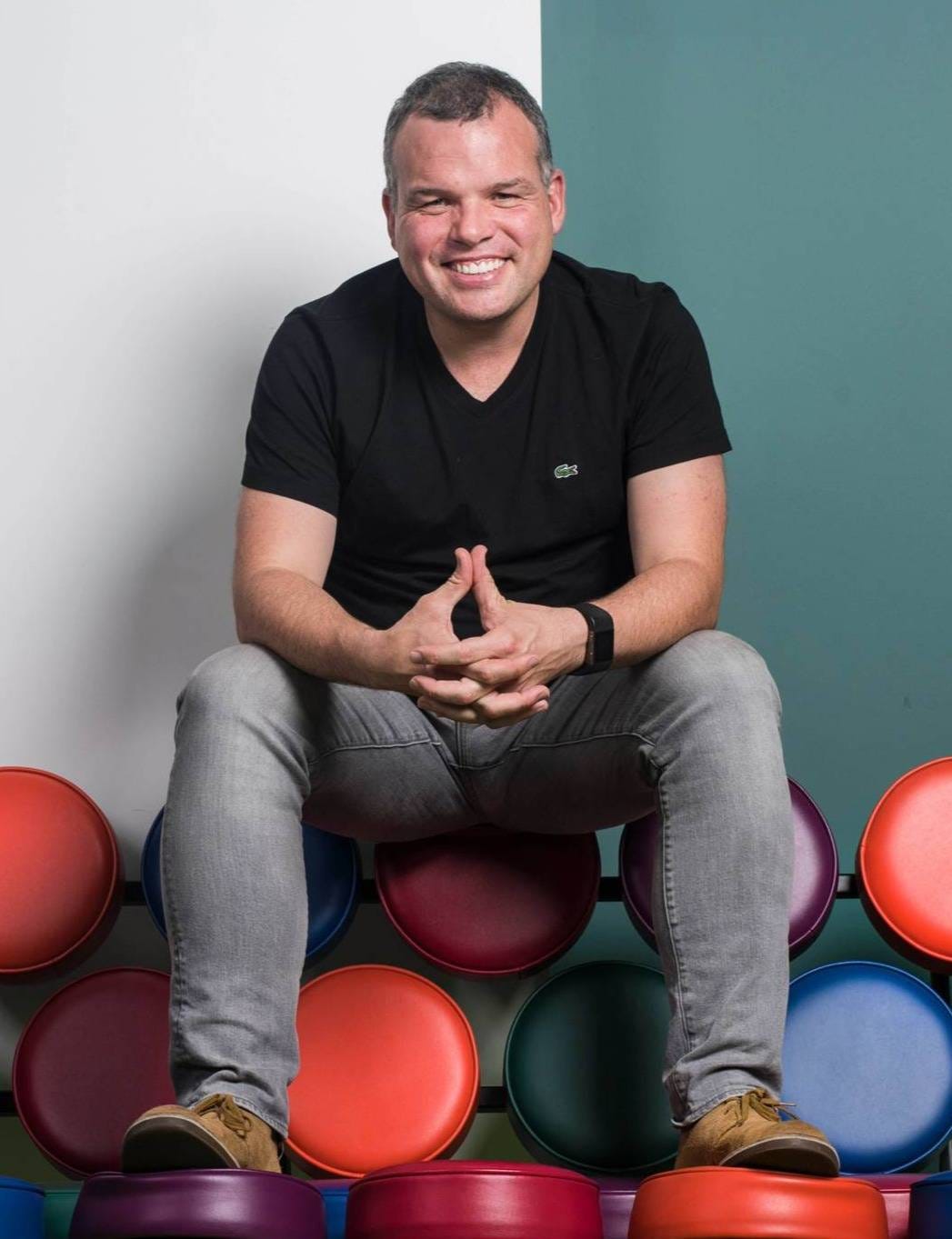Sunday Signal: Longevity, Loan Sharks, and Learning
Welcome to The Sunday Signal—your weekly dive into how technology shapes our world and what that means for all of us. Issue #1 20 April 2025
⏱️ 5 min read
Welcome to The Sunday Signal—your weekly dive into how technology shapes our world and what that means for all of us. Each week, I'll share insights on developments that matter beyond the headlines. Today: Michael Sheen takes on predatory lenders, AI's potential to double our lifespans, and why education needs to teach what machines can't learn. Three different stories, one shared question: how do we make sure technology serves people, not the other way around?
BANKING’S BETRAYAL: MICHAEL SHEEN’S MISSION AGAINST PREDATORY FINANCE
In a country that only recently applauded its essential workers from doorsteps nationwide, a profound betrayal is quietly unfolding. Actor Michael Sheen’s powerful Channel 4 documentary, Michael Sheen’s Secret Million Pound Giveaway, has illuminated a crisis hiding in plain sight, one that strikes at the heart of what we value as a society.
Using £100,000 of his own money, Sheen eliminated over £1 million of crushing high-interest debt suffocating families in South Wales. This wasn’t merely an act of charity; it was a damning indictment of a financial system that has abandoned the very individuals it recently celebrated as heroes.
What I found most disturbing wasn’t just the scale of the debt, but who bears this burden. Many of us assume predatory lenders primarily target the financially irresponsible. The reality is far more troubling: it’s our NHS nurses, care workers, and delivery drivers—those who sustained our nation during its darkest hours—who are now being systematically exploited by lenders profiting from desperation.
This reality came into sharper focus during my conversations with Andrew Rabbitt, CEO of Ilkley-based Incuto. His team builds critical infrastructure enabling credit unions to provide fair, affordable loans to communities overlooked by traditional banks. Through discussions with an NHS Credit Union, I learned of a practice so brazen it borders on dystopian: loan sharks strategically positioning themselves at hospital exits to intercept exhausted healthcare workers finishing their shifts.
Consider this scenario: after a gruelling 12-hour shift saving lives, you’re pursued by debt collectors. This isn’t merely exploitation—it’s a moral failure of our financial ecosystem. When mainstream financial institutions withdraw from communities, predatory alternatives rapidly fill the void, casting lifelines that inevitably become traps.
Approximately 30% of the UK population—around 20 million people—cannot access loans through traditional banking channels. Incuto aptly describes this as the banking system’s pervasive “reason to say no” philosophy. Between 2013 and 2023, the rate of people turning to illegal money lending was ten times higher than those joining credit unions—a vivid illustration of a system in profound failure.
THE 150-YEAR LIFE: PROMISE OR PERIL?
While millions struggle with immediate financial survival, technological advancement marches forward with the tantalising promise of radical life extension. As I explored in my column in this week’s Yorkshire Post, the notion that we might soon celebrate our 150th birthdays surrounded by five generations of family is becoming increasingly plausible.
Anthropic CEO Dario Amodei’s prediction that AI could double human lifespans within a decade initially struck me as Silicon Valley hyperbole. Yet the historical context gives pause: life expectancy nearly doubled in the 20th century, from roughly 40 years to 75. Is it so implausible that the accelerated pace of technological advancement could double it again?
What makes this vision compelling isn’t just historical precedent, but the extraordinary acceleration of scientific problem-solving we’re witnessing. At Imperial College London, AI solved a complex microbiological puzzle in just 48 hours—something that had confounded researchers for a decade. That’s a 1,825-fold leap in discovery speed.
But this isn’t just about the science of longevity—it’s about the ethics of access. The same technologies that promise to extend life could, without inclusive policy and equitable infrastructure, deepen the inequalities already straining our society. If we can teach machines to fight disease and repair our bodies, we must ensure those breakthroughs reach beyond the privileged few. The real challenge isn’t whether we can live longer—it’s whether everyone gets the chance to live well, too.
TO COMPETE WITH AI, EDUCATION MUST FOCUS ON HUMAN SKILLS
“Technology has the power to emancipate people from exploitation. Far from being the threat to humanity as presented by popular science and culture, artificially intelligent machines can fulfil the same role as slaves in ancient Greece, freeing us from servitude and drudgery. But to get to this promised land, we need to re-route our education system.”
I wrote these words back in 2019, and they’ve acquired new urgency as we witness the breathtaking acceleration of artificial intelligence in 2025. What seemed provocative then has become self-evident now: AI is radically transforming the relationship between humans and work.
The evidence is compelling and undeniable. In 2022, ChatGPT successfully passed the United States Medical Licensing Exam—the gold-standard test required to practise medicine in the US. By 2023, AI systems sailed through the bar exam in the 90th percentile and passed the Wharton MBA. Today, these systems draft legal briefs, compose symphonies, write sophisticated computer code, diagnose complicated diseases, and engage in subtle conversations increasingly impossible to distinguish from human discourse.
Having founded and invested in multiple deep-tech software companies, I observe technological disruption from the frontlines. The speed and scale of AI’s advancement have surpassed even the most ambitious forecasts, fundamentally transforming tasks once thought to be uniquely human.
The job implications extend far beyond previous technological revolutions. McKinsey’s 2019 prediction that 800 million jobs were vulnerable to automation now appears conservative. Current AI systems don’t merely automate routine tasks; they increasingly demonstrate capabilities in tasks requiring judgment, creativity, and forms of reasoning previously assumed to be exclusively human.
Our education system needs to change now. The traditional model, which rewards memorisation of facts, mastery of static processes, and standardised assessment, equips students for a world that no longer exists. When an AI assistant can instantly synthesise the entirety of human knowledge on just about any subject, what educational value remains in memorising facts?
Our educational institutions must prioritise:
• Critical thinking and contextual judgement
• Creative problem-solving and collaboration
• Emotional intelligence and interpersonal skills
• Values-based decision-making
• Adaptability and lifelong learning
Jack Ma, founder of Alibaba, once said that computers will always outperform humans in certain realms: “They never forget, they never get angry.” Accepting this reality is the first step towards a productive human-machine partnership.
FINAL THOUGHTS: THE IMPERATIVE OF BALANCED PROGRESS
These three themes—banking’s betrayal of essential workers, AI-driven longevity breakthroughs, and education’s necessary evolution—converge on a central challenge for our society: How do we harness technological advancement to serve genuine human flourishing in its fullest, most inclusive expression?
The ancient Greeks envisioned a society where citizens were freed for intellectual and philosophical pursuits through the use of slaves—a system we rightly condemn. Today, we have an extraordinary opportunity to achieve intellectual liberation through technology. AI can assume the burden of routine mental labour, freeing human creativity and ingenuity for higher pursuits.
Yet this vision rings hollow when essential workers are simultaneously exploited by predatory financial systems. The paradox is striking: we develop technologies capable of extending human lifespans while perpetuating economic structures that diminish quality of life for millions. True progress requires alignment between our technological capabilities and our social responsibilities.
The future’s potential is undeniably extraordinary, but realising it requires more than isolated technical innovations. It demands an integrated reimagining of our foundational structures—from credit systems that recognise responsibility over mere risk, to educational institutions that nurture uniquely human capabilities, to healthcare advancements distributed with equity rather than privilege.
In future editions of Sunday Signal, we’ll continue exploring these critical intersections between technology, social systems, and human potential. Until next Sunday, I invite you to consider: What would truly constitute progress in a world where technology can both liberate and constrain? How can we create systems where extending life, enhancing its quality, and expanding human capability advance in concert rather than in competition?
David Richards MBE is a technology entrepreneur, educator, and commentator. The Sunday Signal offers weekly insights at the intersection of technology, society, and human potential.
© 2025 David Richards. All rights reserved.





